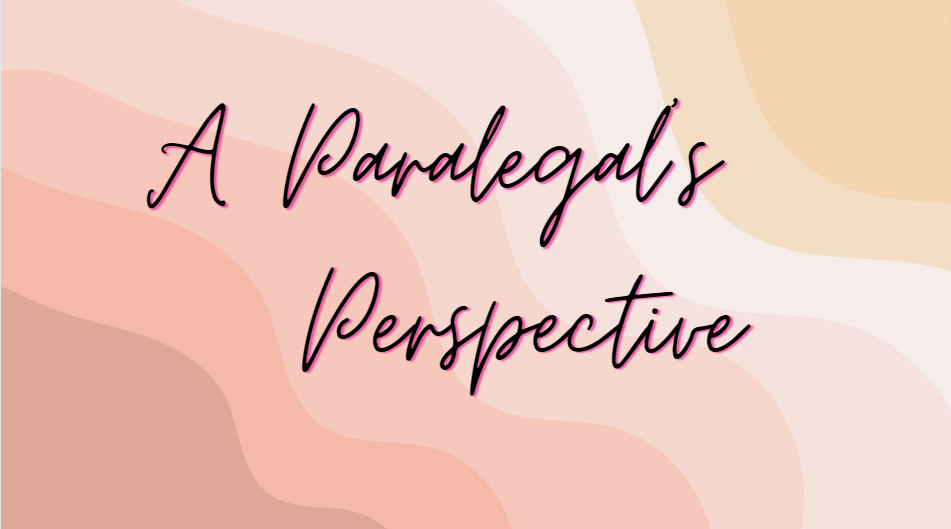
⚖️Welcome back to A Paralegal’s Perspective!
⚖️This Month’s Interviewee: Stacey Hunt
- How did you discover the Paralegal profession?
⚖️ I had been working as a travel agent after I graduated college. Although I was getting to travel a lot, I wasn’t making much money. A girlfriend who was a legal secretary was expecting her first baby and was looking for someone to help out her attorney while she was on maternity leave. Although I didn’t know a pleading from a hole in the wall, I could type, so he hired me. After my friend came back to work they kept me on part time, but I needed full time work. I got hired as a legal secretary at a bigger firm, which employed paralegals. I remember thinking, man I would never be a paralegal, they have to know too much and they work so hard! Six months later one of the paralegals left and they asked me to fill her position. I was terrified, but I said yes. Then I decided I’d better go back to school and get my paralegal certificate (that was before B&P 6450), so I did, and never looked back.
2. What is something you wish you knew before joining the legal profession?
⚖️ I wish I had known how amazingly fun and interesting it would be, or I would have done it from the beginning. The law affects all of us every single day, and it is ever-changing and never boring. I loved not only the mental exercise, but also helping people get themselves out of whatever trouble they were in. It has also been an amazing career, that not only provided me an interesting living, but allowed me to go in all kinds of directions, such as writing, lecturing, and teaching.
3. How do you think the new advancements of AI will affect the legal industry?
⚖️ AI could be a great tool for the profession, as long as it doesn’t make attorneys and paralegals lazy. They still have to fact check to make sure the information the computer is spitting out is valid. There may be a period of time where people will think they don’t need an attorney, because they can just get their answers from the computer, but after they get burned a few times, they will be back. I did read a very interesting article about an experiment done in a criminal courtroom, where the researchers fed the fact scenarios from several hundred cases into a computer to see if it could come up with a better decision than the judge. The idea was, using the AI would eliminate bias and sympathy that would be exhibited by a human judge and reach a truly impartial decision. The final result was, the AI “judge” did do a better job than the human judge in calculating which defendants were lying or would commit a subsequent crime. When I ask my students in my Law Office Technology class if they would be willing to be judged by an AI judge, most of them say no, they would not trust it and would prefer a human, and the fallibility that would come with that.
4. What is the most interesting type of law to you, and why?
⚖️ Wow, that’s a tough one. I would say the most interesting law I have ever done is attorney malpractice defense. To win such a case you have to show that even if the malpractice had not occured, the client would have lost the case anyway, so there were no damages. That means you have to pretend to try (or retry) the underlying case to see what the result would have been. It’s quite a mental exercise! Probably the most fun type of work I have done is intellectual property work. It is such a positive, constructive type of work as compared to litigation. People are creating and inventing things. Having worked on getting an invention through the US Patent Office and then seeing that product on the shelf is very rewarding.
Thank you so much Stacey for being this months interviewee! Until next time… 🙂
